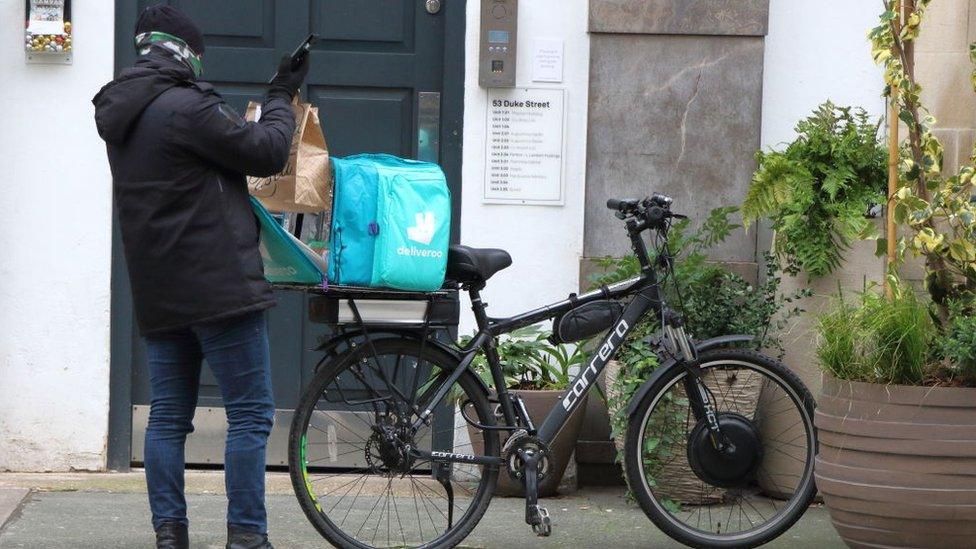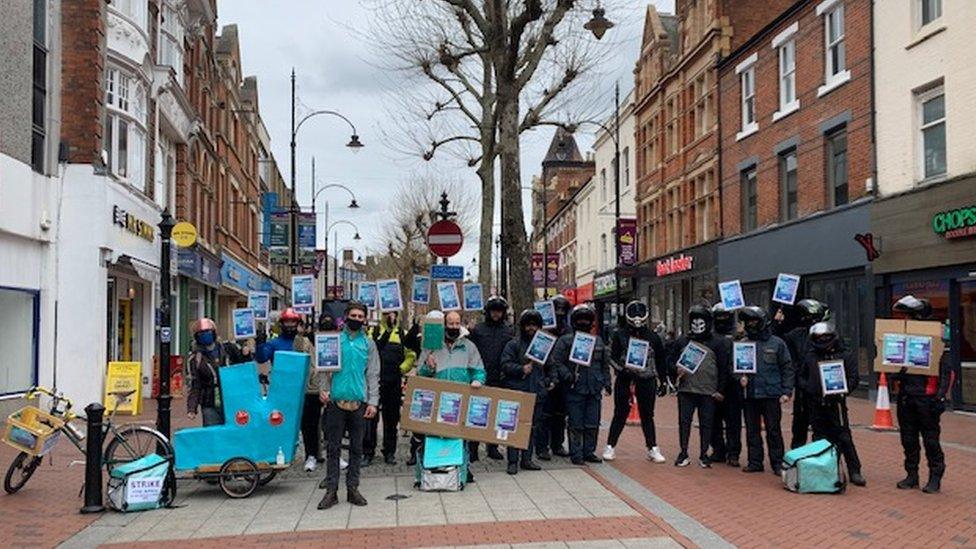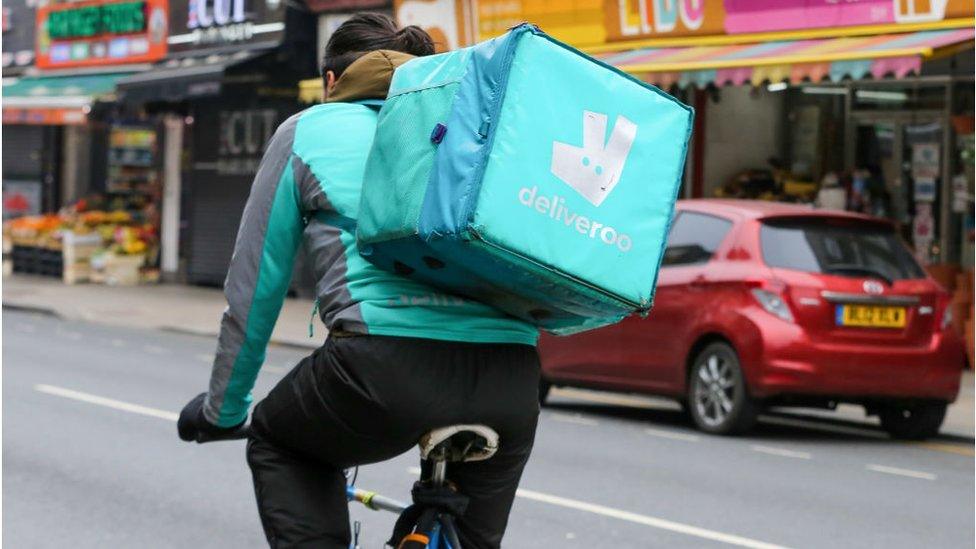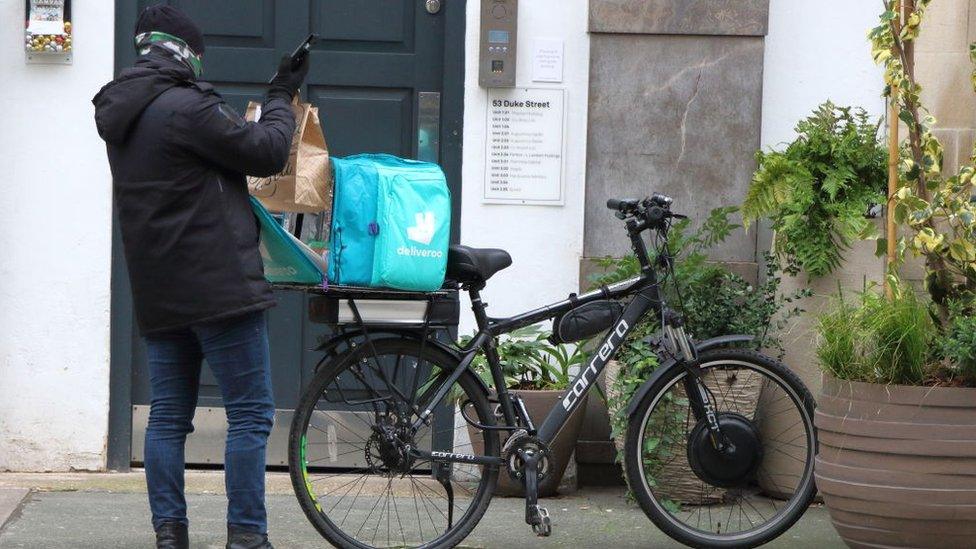Deliveroo couriers can train to spot crimes
- Published

Couriers wanting to participate in the scheme will be trained to spot crimes, such as domestic abuse and drug dealing
Food delivery service Deliveroo is partnering with Neighbourhood Watch in the UK to offer training to its couriers to keep an eye out for crimes.
It is part of the firm's plan to use its network "as a force for good".
Deliveroo has faced criticism over its riders' working conditions, and one union called the plan "divisive".
And Jake Hurfurt, of privacy watchdog Big Brother, was unsure if the public would want Deliveroo riders to "become a privatised, quasi police force".
He said there was a risk of creating "an army of poorly-trained snoopers that would be more Johnny English than James Bond".
And he called it a badly-judged PR move that would be "bad for workers, bad for communities and bad for the company's reputation".
'Vital role'
Under the new scheme, drivers can take part in optional training, created by Neighbourhood Watch and verified by the Metropolitan Police.
It would help them spot signs of:
street harassment
domestic abuse
modern slavery and human trafficking
county lines and drug dealing
Will Shu, the founder of Deliveroo, said: "Riders have carried out a vital role during the pandemic and are well-placed to build on this experience to spot any concerns in the neighbourhoods in which they work and live."
The idea for the scheme came from a delivery rider who became a Neighbourhood Watch coordinator. Part of the course will provide safety and awareness training for riders.
Female safety
Last year Deliveroo partnered with the NSPCC to train couriers to spot and report signs of child abuse. More than 7,000 riders completed the training.
When the firm went public in April, it was shunned by some investment firms over its record on workers' rights.
On the day it listed on the London Stock Exchange, there were strikes across the UK, and demands for the firm to do more to end harassment of its workers.
According to the IWGB union, more than eight out of 10 couriers felt unsafe at work and had experienced either verbal or physical assault.
Ahmed Hafezi, from the couriers branch of the IWGB, told the BBC: "Time and time again couriers have reported the inadequacy of Deliveroo's process for supporting workers who've been assaulted on the job.
"Often, when couriers report incidents to Deliveroo and other courier companies, the first question is about the welfare of the package, not the human being delivering it."
He said he was not sure the new scheme was the answer.
"The solution to this is definitely not more policing. Couriers, the majority of whom are BAME, are already subject to disproportionate police stops and immigration checks. We know the courier community is safest when it is united, not divided. This project will be divisive."
Deliveroo has now begun to host roundtables to discuss female safety, in response to concerns raised by female couriers.
Related topics
- Published7 April 2021

- Published25 March 2021

- Published7 March 2021
